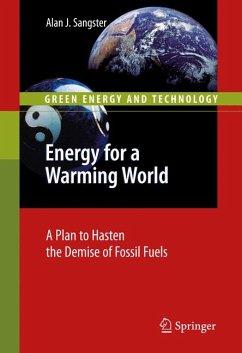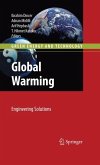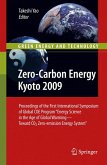Energy for a Warming World challenges the commonplace notion that the amount of power which mankind can potentially harness from renewable resources is more than large enough to assuage future demand levels. The presumption of unlimited power from renewables does not take into account the fact that it may not be possible to fully develop this potential, or that the resulting energy may not be available where it is most required. Engineering limitations and deficiencies in production will inevitably undermine the best calculations.
By examining the renewables issue from an electrical engineering perspective, and exercising due regard for the limited capability of current and future electrical generation and transmission systems, this book attempts to provide more realistic statistics for the levels of power which could be extracted from sustainable resources in the critical time frame of 30 to 40 years. The engineering logic leads inexorably to the importance of taking a global outlook on the switch to renewable power supply and transmission - an outlook which has some surprising and uncomfortable ramifications for mankind.
Energy for a Warming World provides a new perspective on renewable resources for academicsand researchers in environmental or electrical power engineering, as well as to students in related areas. Its accessible approach also makes it invaluable to general readers who want a greater understanding of the engineering-based facts behind the global warming debate.
Dieser Download kann aus rechtlichen Gründen nur mit Rechnungsadresse in A, B, BG, CY, CZ, D, DK, EW, E, FIN, F, GR, HR, H, IRL, I, LT, L, LR, M, NL, PL, P, R, S, SLO, SK ausgeliefert werden.









